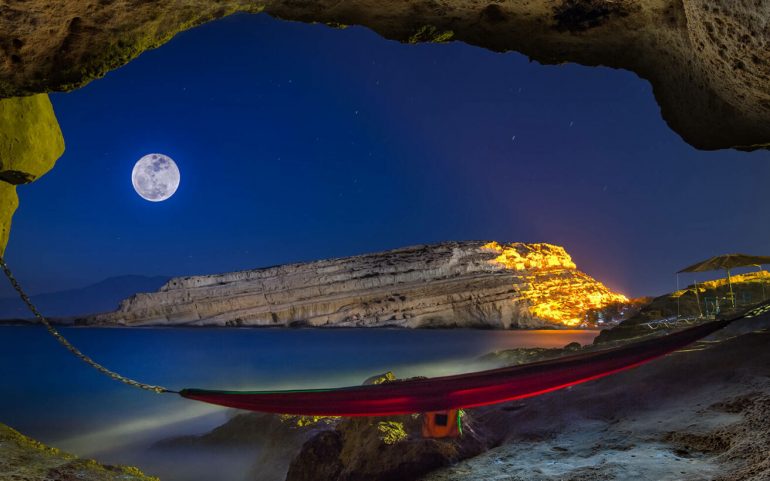They say that the caves still sing on one of the most legendary coasts of our country, the honored Matala.
Mythical dimensions today, the Matala it is precisely that kind of history that reality and fantasy, truth and urban myth meet in equal doses.
The decades that separate us from the time when Matala was "something", a true global phenomenon, that is, have grown in our consciousness this unknown fishing village of Crete that was occupied by the children of flowers during the second half of the 1960s and fairy tale sprang up.
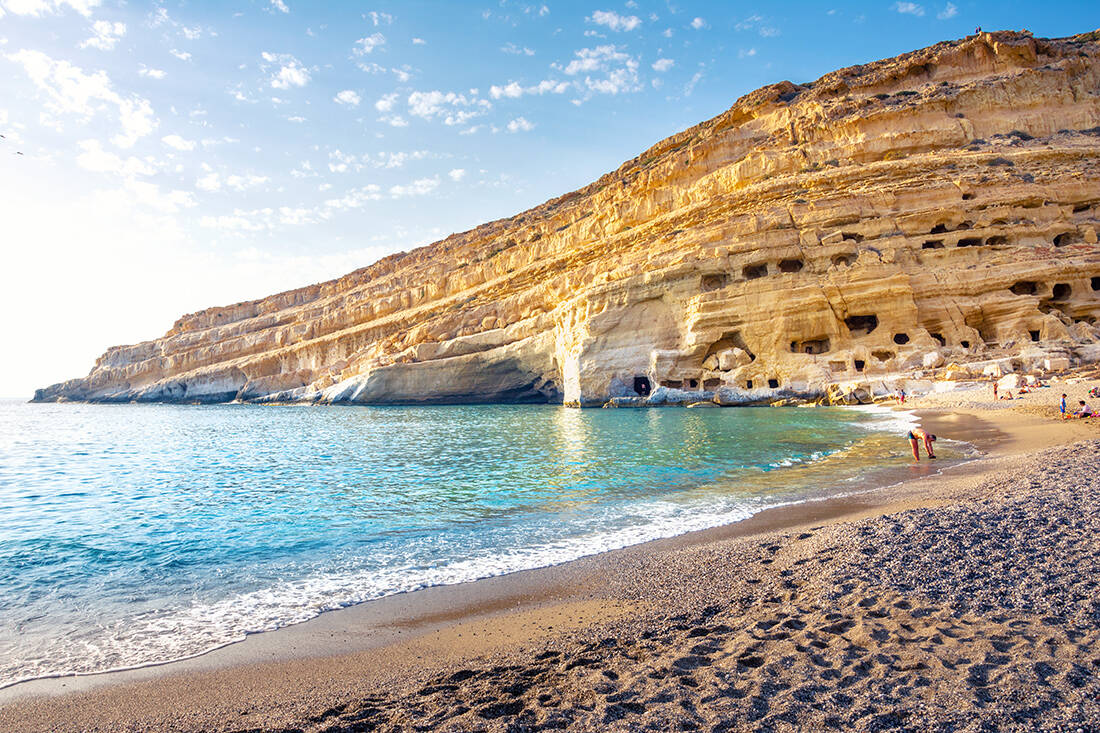
A fairy tale that, due to the hallucinogens, even had a dragon! Where dragon here Nixon, who the popular urban legend wants to hunt in the caves of Matala the disobedient Americans, who preferred to live as hippies rather than soldiers in Vietnam War. We talk about such things every time we pronounce the word "Matala".
The old myth, however, has a fire that is still burning in his souls. The sea, the caves and the fish taverns still stand there and everyone is willing to tell what happened in the past in the picturesque village of the municipality of Phaistos, on the south coast of Heraklion.
Where some sought earthly utopia with song, guitars and Dionysian celebrations…
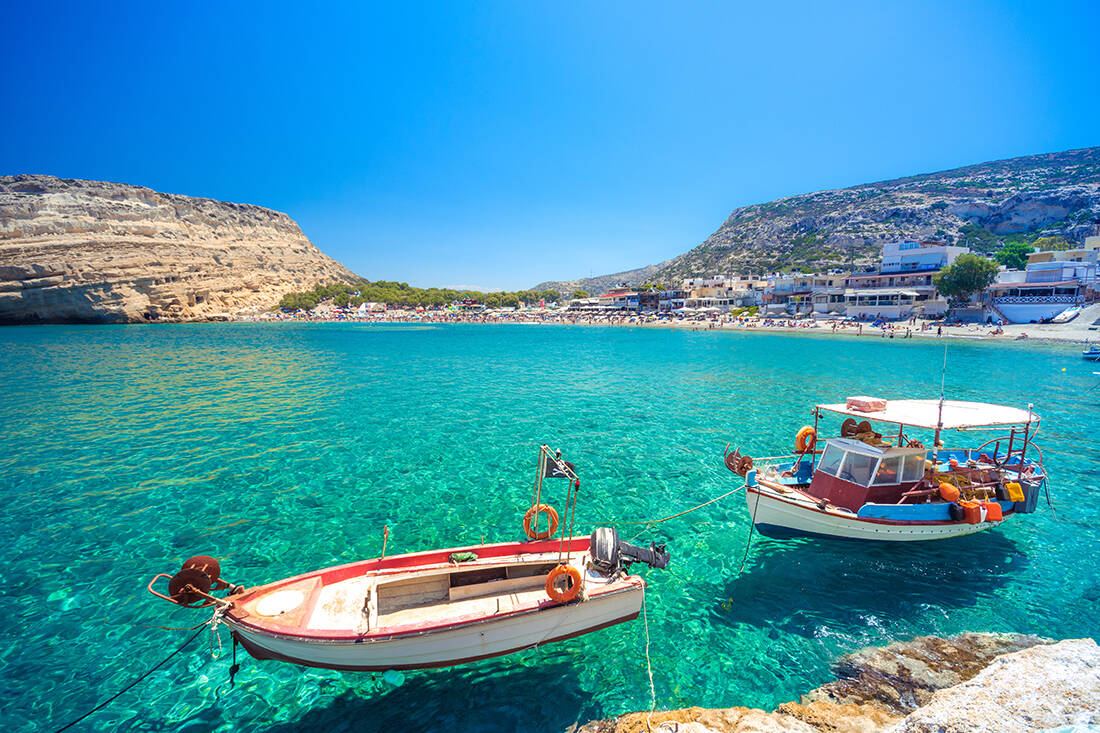
A natural harbor in bay of Messara, in the south of the prefecture of Heraklion and the west coast of the province of Pyrgiotissa in particular, was known since ancient times. Matala was also a port of Phaistos during the Minoan period and Gortyna later, in Roman times.
There, in this thick layer of gravel and pebbles, in the tamarisk trees, the rich archeological finds and the historical shipwrecks, you can not miss the most characteristic component of the charm of Matala, these impressive formations of sandstone cliffs that form some incredible caves.
One of the most unusual landscapes of Crete is even more mysterious, since we do not know exactly who built these artificial caves. Who carved them on the rock. It was probably a Roman work, it may have been tombs, but some caves have rooms, stairs and windows, suggesting that they were used in some historical phase as residences.
It may have been the work of the Etruscans or even the early Christians. It may have even been catacombs. Be that as it may, the caves overlooking the vastness of the Libyan Sea have been uninhabited for centuries and centuries. Until the 1960s, when some people started calling them their home.
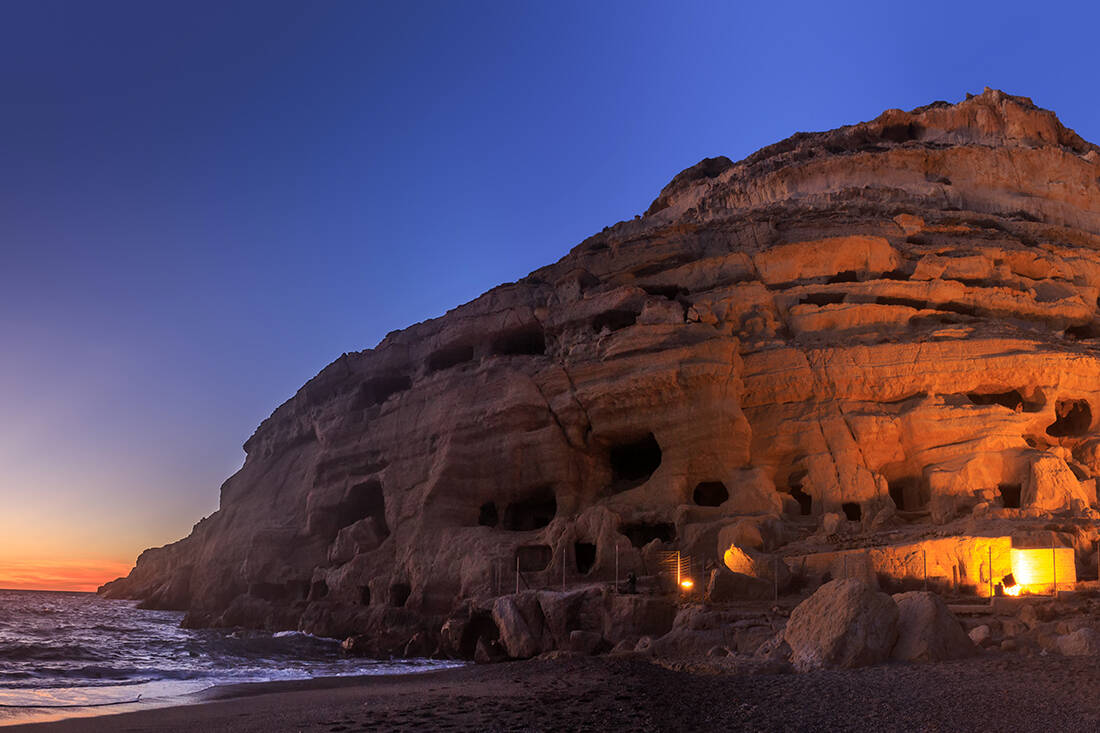
So at the point where the fertile plain of Messara meets the arid Asterousia Mountains and the small valley finds its way to the sea, there was once nothing remarkable. Matala was a humble fishing village that served exclusively the needs of the inhabitants of the village of Pitsidia.
Exactly how the hippies discovered Matala is not exactly clear, however we know that since the mid-1960s wandering flower children have flocked here in greater numbers.
Η Cretan land He also had what Matala dreamed of and even natural houses to live in. And a dreamy landscape of course, taken from postcards, like those who wandered in their homeland and embodied one of the aspects of utopia, life without contracts.
The fishing village was magically transformed into one of the largest centers of the world movement. Hundreds of young people came here and lived carefree in the caves, in this earthly paradise where they could breathe and express themselves freely, rejoice in love and create.
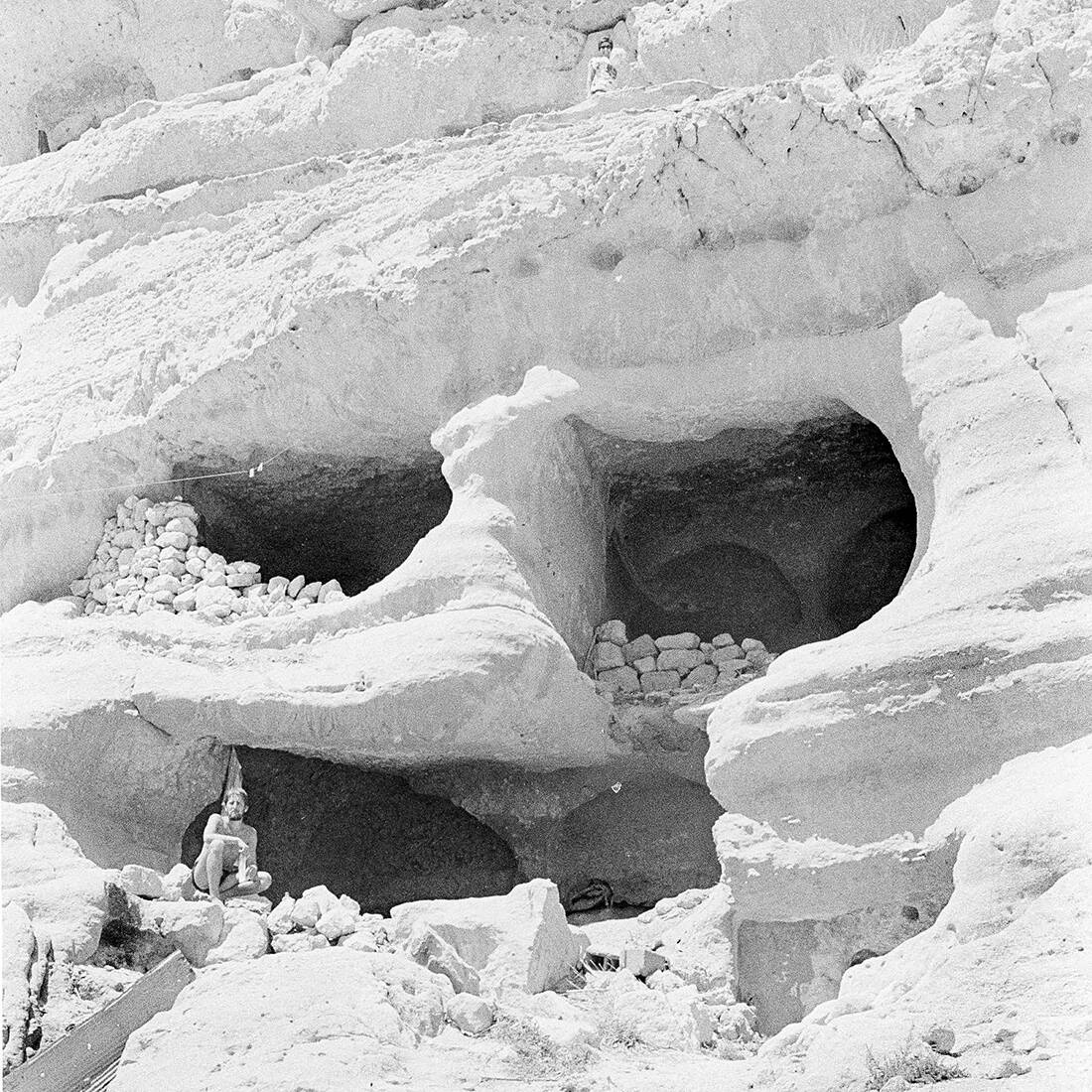
And of course to form with the two fingers the signal of victory and to utter this "peace man" without facing diminishing glances. This honeycomb with the carved caves in the soft white porphyry proved irresistible to the hippies of Europe and America, as if it were synonymous with the bohemian life they were so looking for.
Reconstructing with difficulty the chronicle of Matala, we can schematically say that initially those who felt frustrated by the societies in which they lived took refuge. The bitniks seem to be the first to discover the beach in 1965 and two years later the first hippies arrive here.
These "strange" young people lived in caves in small groups, while there were no couples or whole families. And they lived like primitives, without comforts. This, after all, was what they wanted to get away from the artificial demands of consumerism. After all, they were "children of God" and even the clothes were optional when the weather allowed.
They watched with oil lamps and cooked on gas stoves. They ate fish, but also what they could buy from the small fishing village. And they paid them by working in the fields of the plain of Messara. A little work. But their needs were few.
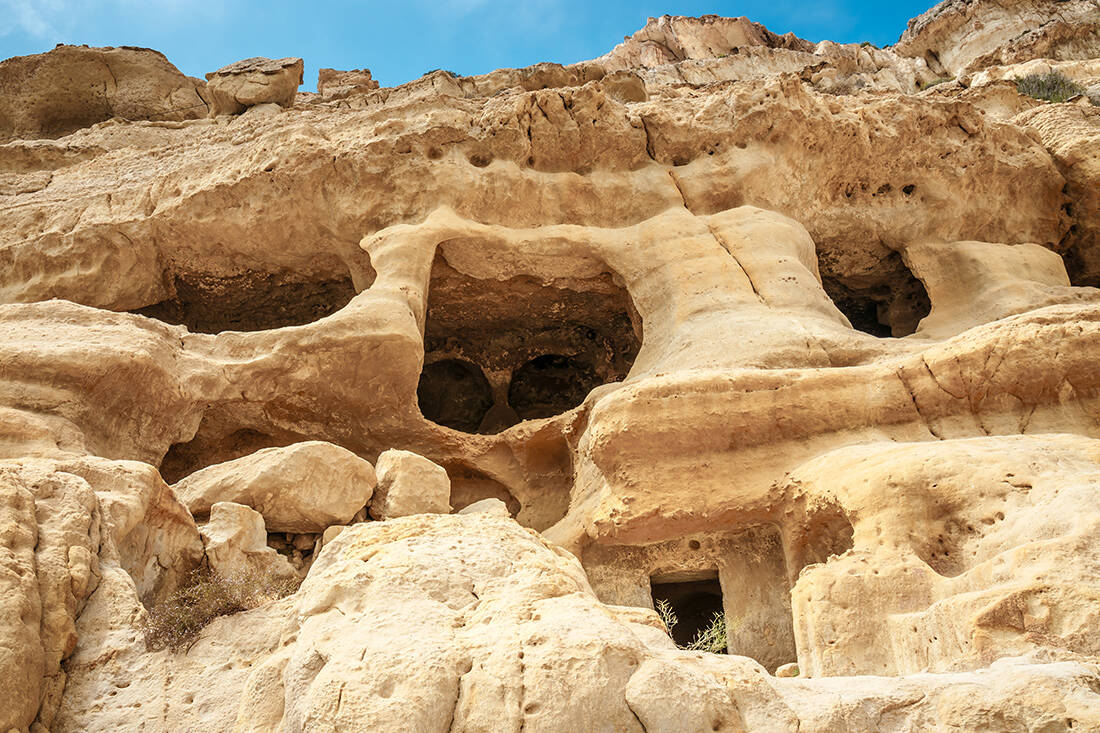
It is a fact that such a libertarian scenario in the conservatism of the time could not last long. Part of the local community is scandalized by what is happening and begins to revolt against them hippies, demanding more and more urgently to remove the "vulgar" from the beach.
Until the news "about uselessness" reaches the ears of the local despot. Metropolitan Timothy, who later (1978) became Archbishop of Crete, proclaimed him unyielding in the hippies with a firman in June 1968. The news was published in Athenian newspapers and eventually escaped from Greek territory, becoming world news.
Characteristic here is the fact that the important and world-circulation American magazine "Life" sends a correspondent for on-site reporting in Matala and the July 1968 issue covers the caves and the hippies!
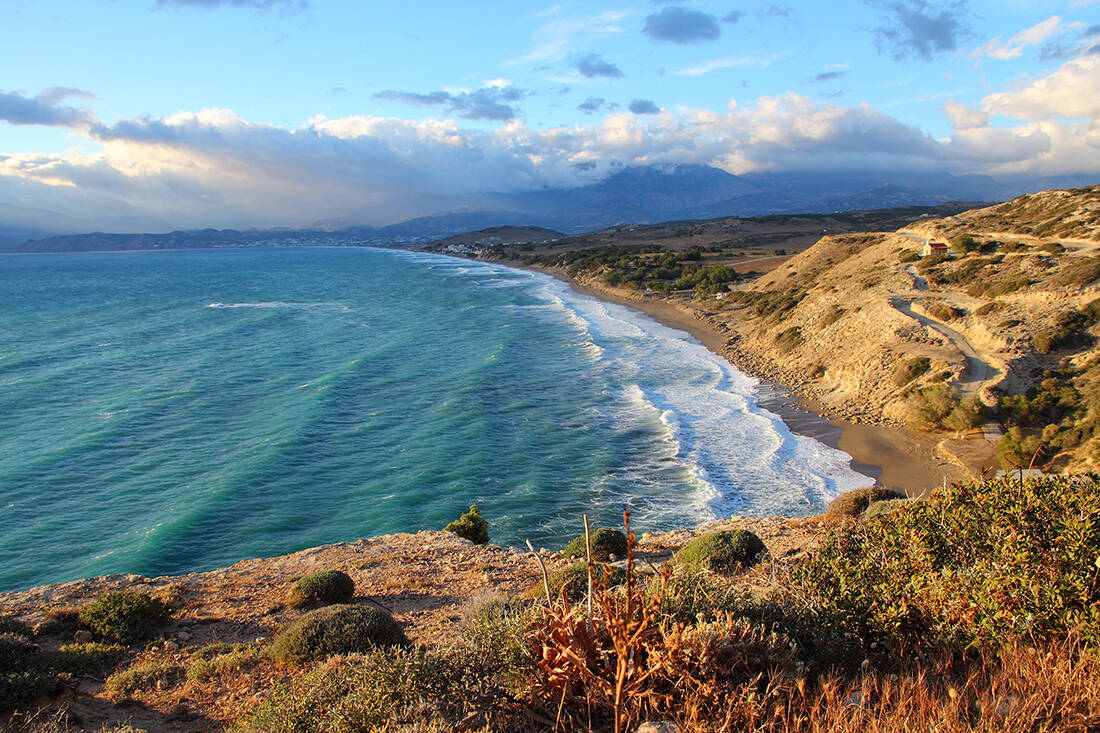
Result; Hippies everywhere are informed about the earthly paradise of Crete and the community is growing even more. Matala is now world famous, the caves are flooded with people and the picturesque fishing village is at the center of the hippie movement.
Americans, Canadians, Germans, British, French, Belgians, Dutch, Scandinavians, Australians and many more find refuge in Matala. The Greeks are absent emphatically, at least during the first years.
Cretan newspapers are now involved in the game, which incite hatred with derogatory descriptions ("dirty" and "abnormal"). And while the Cretans so far they have not had any problems with the children, they now appear more and more anxious about what - non-existent or propagandistic - is written in series. Even for the "third sex" they also said that they sought to establish the horrors!
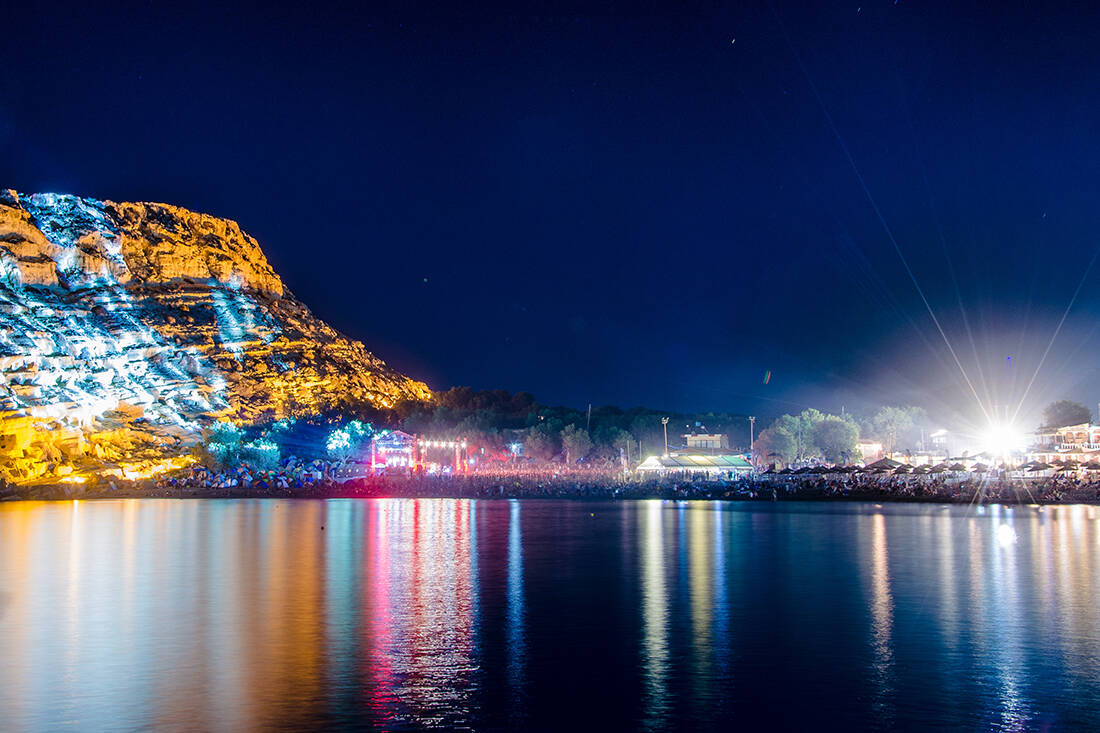
In all, the prosecutor of Heraklion orders a search in the caves of Matala and the Security starts the first surprise operations. The first hippies are arrested for drug possession and the courts make 17 convictions.
The situation took an even worse turn in the early 1970s, when they began to circulate fake news for a world hippie conference in Matala. The news bomb is fake and provocative, as it aims to add more fuel to the fire.
The church of Crete intensifies its struggle against "hippieism", as typically mentioned in the announcements of Metropolitan Timothy, and the drums of war have meant for good under the pretext of "the congress of Matala", as we read in the February-March publications 1970. End titles will soon fall.
The spring of 1970 will be the final finale of this smiling parish. Until that April, the Junta of Colonels had not officially taken a position on what was happening in Matala.
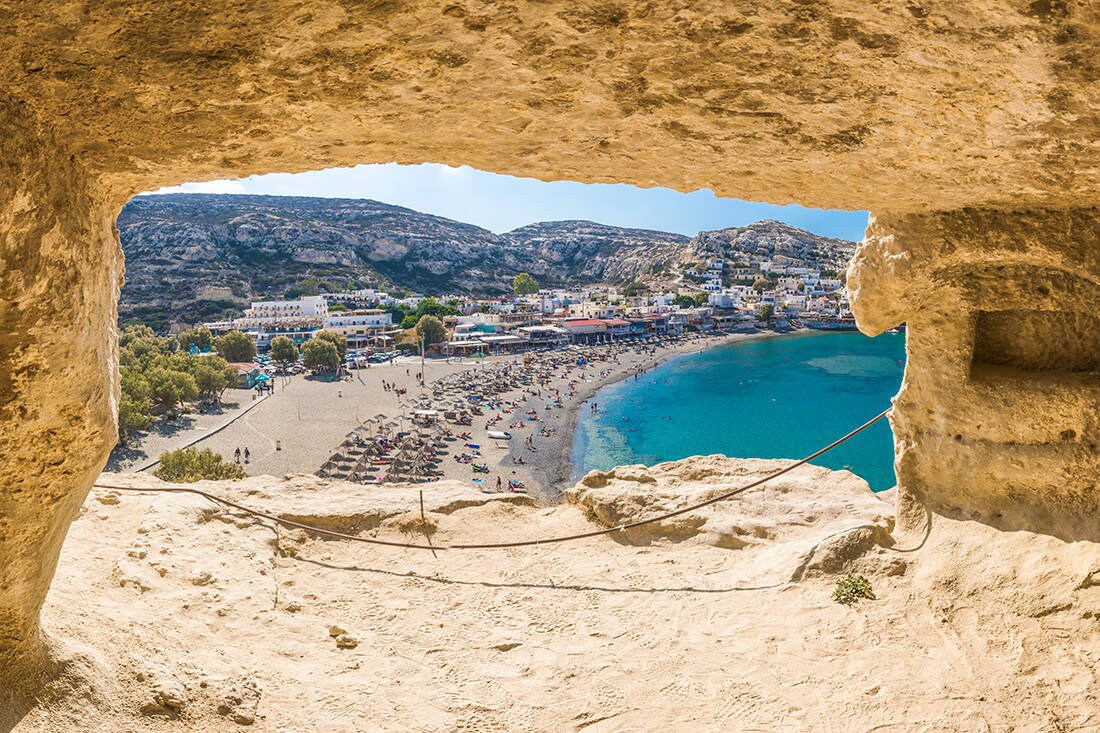
The situation is also deplorable and the result uncertain. Hippies send letters to their homelands and no one wanted Greece to be accused of barbarism. Or to undermine the tourist flow to our country. A broom company would tarnish the name of the country abroad. And so the leaders of the April Coup had been cautious until then.
Why their attitude has changed is debatable. Some argue that the decision came from outside, from the ubiquitous American factor. Maybe the answer lies in the lyrics of the Canadian songwriter Johnny Mitchell, who lived and fell in love as few as Matala, who sang "Let us drink to the health of these horrors and these soldiers / To the health of these my friends".
It is said that American deserters from the Vietnam War had also taken refuge in Matala, drawers who received the paper for the jungles of Asia, that is, they preferred the Cretan paradise. Student protests vibrate the United States, sometimes have a bloody impact, and one has to do something about all this bleeding of the military.
The established legend wants Nixon to get Papadopoulos to do the dirty work. Maybe again Mitchell was referring to Greek soldiers, as there was a camp nearby and the soldiers often went down to Matala for some cool beer. And to see the girls in bikinis, alas.
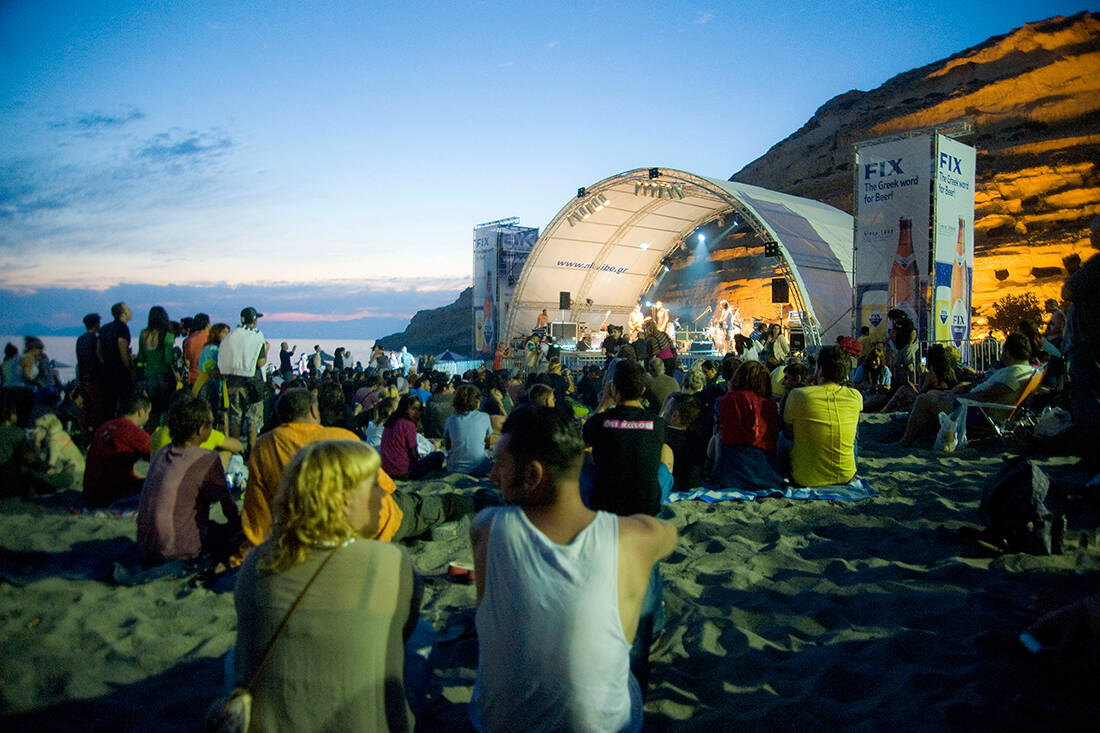
Who can say for sure if the operation was of American origin or if on the contrary Papadopoulos said to do the trick of the clergy and conservative circles? The second, however, seems closer to reality.
Anyway, the gendarmes invade the fishing village in May 1970 and everything ends. Most hippies are caught. Those who escape are scattered to other parts of Crete. Some resort to Ios.
Utopia is trampled and the caves are emptied. Definitely seem to be stamped on political changeover, in 1977, by the archeological service, as we meet testimonies of people who claim to have passed through Matala for a while even after the turbulent 1970s.
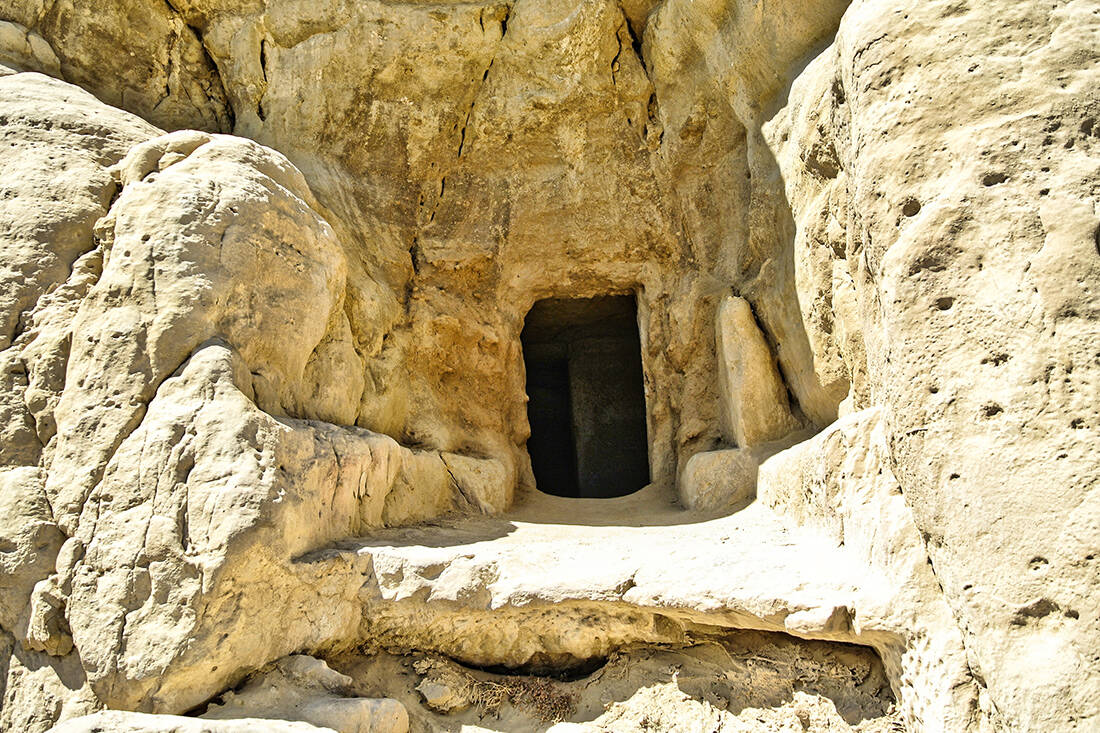
Perhaps the junta's "shower" was a spasmodic move that spring and life somehow rediscovered its way to the caves. If the hippies really came back, things would undoubtedly be different.
What is left of Matala? His movie Alekou Sakellariou "My Aunt the Hippie", which was released in cinemas in the winter season 1970-1971 and was probably shot that summer.
If the half-naked hippies we see in the caves are real or comedians, again who says? We now had our own hippie, the great Vassilis Tsivilikas, who with his long hair and talismans brought the children of flowers to the Greek…
